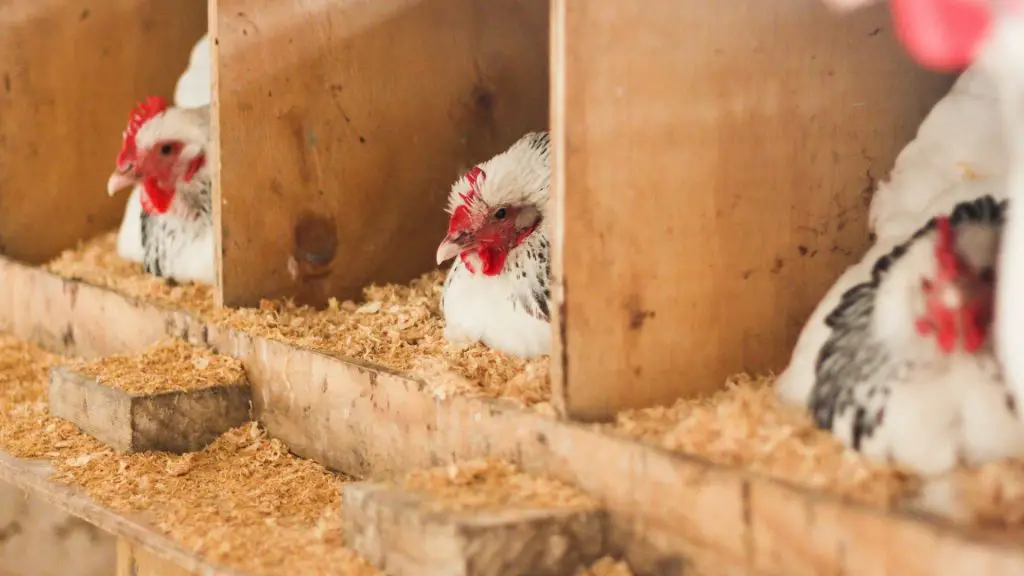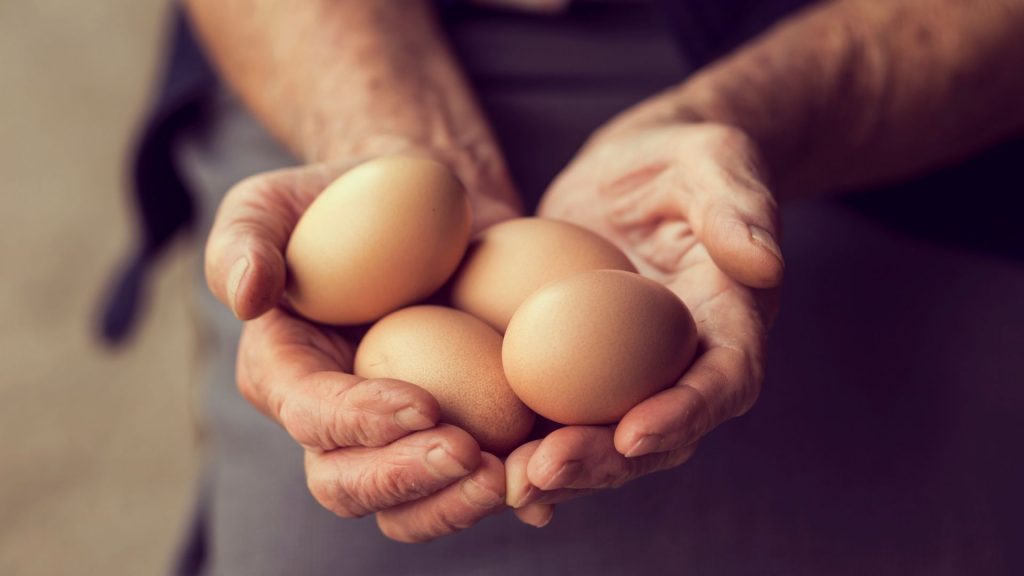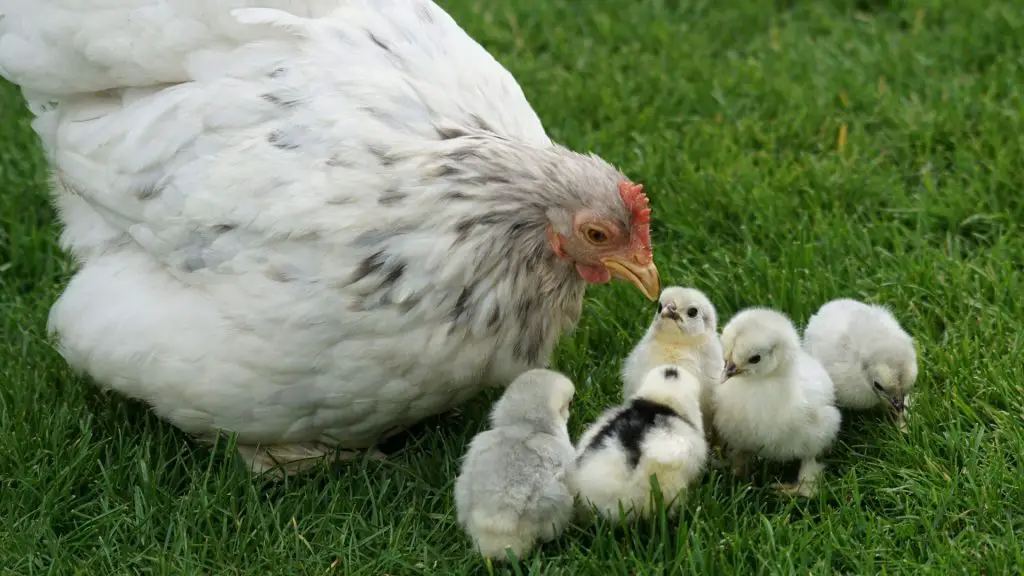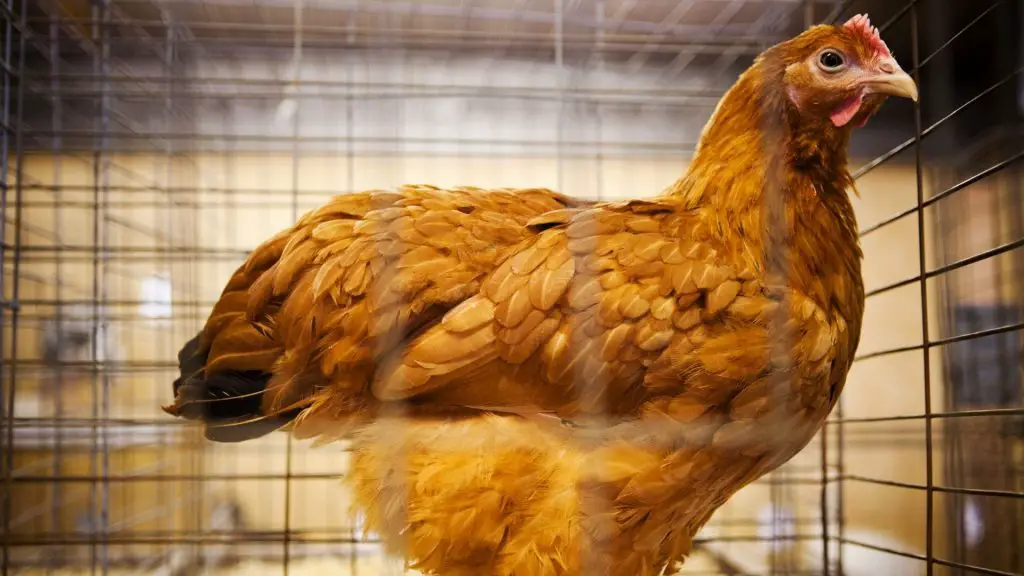If you’re building your backyard flock, you may have questions about what your birds need to produce amazing eggs.
Can chickens lay eggs without a rooster? Chickens can lay eggs without a rooster. All-female birds can produce eggs without males present. These eggs won’t produce chicks, and still, they’re edible. This can cause hens to become broody, but that is easy to solve.
Read on to learn more about chickens, a rooster’s purposes, and hens’ egg-laying patterns.
A Rooster Serves Several Purposes

All hens can lay eggs without a rooster, which is excellent, especially if you only focus on egg production. So, you may be asking yourself what a rooster is needed for. They may seem like noisy pests, but they are actually usefull.
Roosters are valuable to a flock because they can help produce chicks, warn the flock of dangers, defend them, and stabilize social dynamics.
This can keep your birds safer while ranging, but the best protection is having a secure coop and chicken run. A rooster won’t be able to fend off many common predators, despite their attempts.
It’s good to keep a rooster around when you have a larger flock too. They can keep the birds in line and keep the social order more stable. They will organize a pecking order and enforce it. This will prevent other issues that can crop up.
Many cities and townships have rules against keeping roosters, but not having one won’t stop you from enjoying fresh eggs, like a flock of hens can produce. Just make sure to check local legislation.
Hens Get Aggressive When They’re Broody

Broody hens are hens that have started the hatching process and sit on a nest of eggs. They can become aggressive and will put themselves in danger to protect non-viable eggs. These hens will also stop laying eggs.
It’s relatively simple and important to get a handle on broody hens, especially if you have no intention of expanding your flock. Broody hens will significantly reduce egg production.
Broody hens may even attack other members of their flock and humans attempting to take their eggs. They’ll get loud and puff up to look bigger than they are. Sometimes, they’ll even peck anyone who gets too close.
It’s essential to prepare for broodiness before getting chickens. You never know when a hen may start developing broody behavior. It can happen whenever a hen lays an egg.
Old and young hens may develop these tendencies. Certain breeds are more prone to broodiness, like Orpingtons, Sikies, and Sussex chickens.
If you want the best chance of not getting a broody hen, it’s essential to research the breed you are getting. It’ll help if you read breed-specific blogs to understand better how broody some breeds can be.
A well-researched chicken keeper is a better-prepared keeper. If you’re well-prepared, you’ll have a thriving flock. They can also adapt to any situation and will prevent problems in the first place.
Related: What Is a Broody Chicken? | All You Need to Know!
How to Help Broody Hens?
You can’t stop a hen from becoming broody. Some breeds become broody once a year, while some become broody every couple of months. There are even some hens that become broody every month.
You can follow a series of steps to stop the hens from continuing their broody behavior. It’s vital to stop broody behavior before the hen becomes emaciated, hurting other birds. Stopping broodiness will also get the hens laying again and prevent floor eggs.
There are several methods for stopping or helping the birds through broodiness, as discussed below:
Give Your Hens Fake Eggs

Sometimes, giving fake hen eggs that a hen can nest on and removing other real eggs will be enough to stop this hen from brooding.
If you let a hen sit on the fake eggs until the broodiness passes, it prevents broodiness in the future. This will also allow you to keep collecting other chicken’s eggs and prevent your hen from sitting on rotten eggs.
You can use golf balls, mock eggs, and other small objects to serve as the fake eggs a hen can nest on safely. The objects should not be too large, or the hen may think something is up and move to sit on other eggs.
Place a Cold Water Bottle Under the Hens

A cold water bottle is another excellent method to keep your chicken safe and dissuade them from sitting on the nest again.
Chickens will sit in a nest for as long as it takes for the eggs to hatch. That means that they don’t eat, get water, or move out of a too hot environment until chicks appear. What more in the summer season? This is very dangerous, and hens can die from nesting too long.
Cool water bottles will ensure your birds are safe and temperature-controlled, especially during the summer. This trick works great if you live in a desert or other really hot environment. To do this, follow these simple steps below:
Step 1: Carefully place the cool water bottle underneath the hen in the nest.
Step 2: Make sure it’s not frozen or too cold; this could hurt your bird.
Step 3: If you can, remove the eggs at this time.
Sometimes, this temperature difference will stop your hen from staying in that spot and force your hen out of the nesting box.
Remove Eggs More Frequently

Removing eggs from the coop faster will prevent your hens from getting broody thoughts to begin with.
If eggs are left behind frequently, hens will start to watch them like they’re a clutch that will hatch. It can kickstart the hormones that cause broodiness to begin. Then, the hen will stop laying eggs altogether.
Ideally, you should collect eggs every day. If you have a lot of laying hens, you may even need to collect eggs more frequently.
Remove Access to Nesting Boxes or Site
If your birds have been resistant to these other methods, you can even lock them out of the nesting area. You can also cut off access in the coop or a specific part of their yard where your birds are nesting.
This physical separation may help your birds stop being broody. At the very least, it’ll make your birds stay away from the nest and probably get food and water.
Keeping a broody hen out of the nesting boxes will free up space for other birds to jump in and lay their eggs before moving on.
Get Your Hens Chicks

If you have room in your flock and want to add more birds without a rooster, you can purchase chicks and place them under your hen. This will simulate the eggs ‘hatching’ without the hen ever having to mate with a rooster.
Ideally, your hen will adopt the chicks as its own and stop being broody as your hen thinks that the eggs have hatched. This is one of the most effective methods to halt broodiness, but it can also be dangerous to the chicks.
Keep a close eye on the hen if you choose this method. Some hens will reject the chicks you’ve given them and can be pretty violent with driving them off. You should always be careful when introducing new birds into the flock.
Remove Nesting Material

As a last resort, you could remove the nesting material from the area. Without anything to make a nest with, the hen may stop being broody.
If you’re desperate to stop the hen, you could also isolate the hen from the nesting boxes. You could keep the hen in a cage or sectioned-off pen with separate food and water.
You always need to keep your hen near the rest of the flock so the hen isn’t ostracized. The pecking order can be vicious, so you need to take steps to preserve your hen’s spot.
Related:
